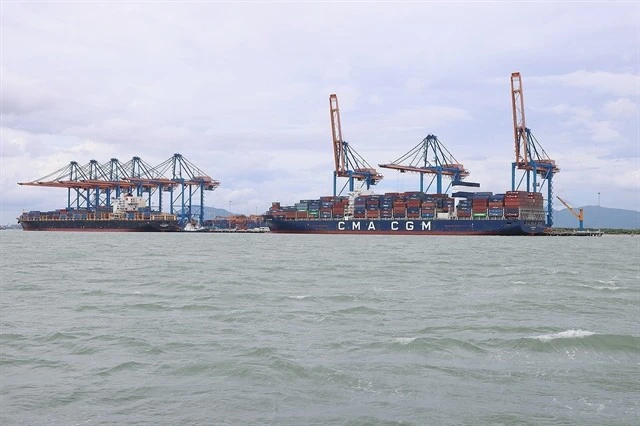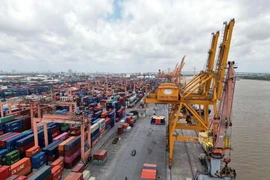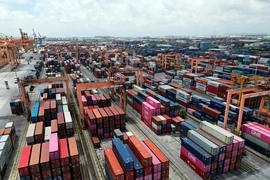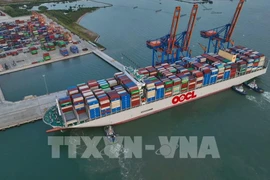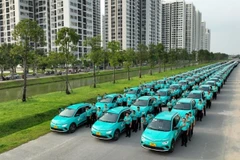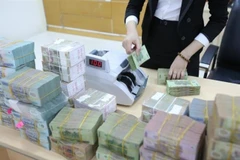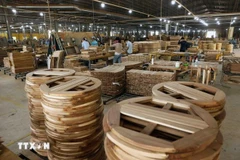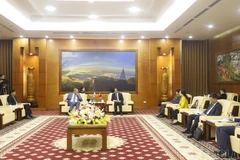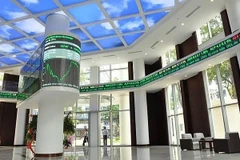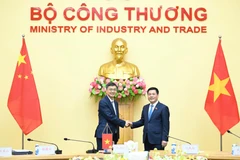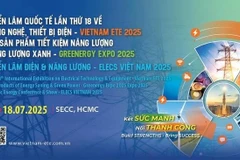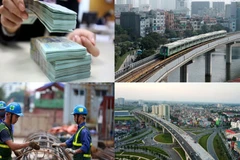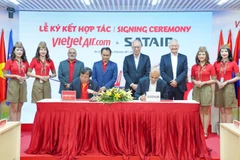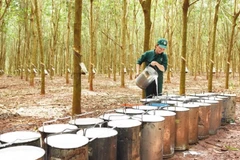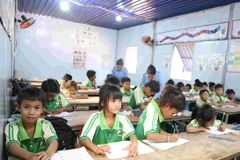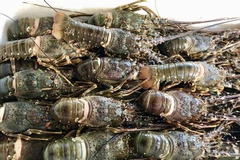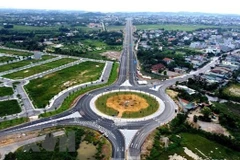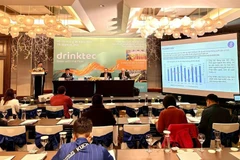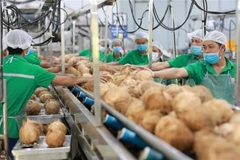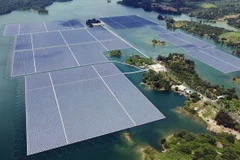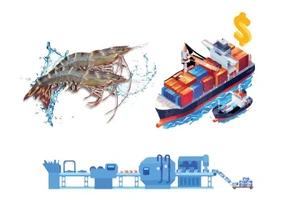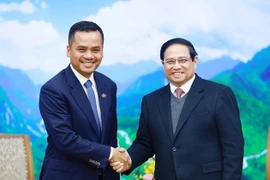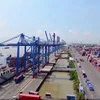Hanoi (VNS/VNA) – Vietnam should prioritise investment in seaport infrastructure and the development of its fleet to boost its competitiveness in the global maritime market, according to the Vietnam Maritime Corporation (VIMC).
The Vietnam Maritime Administration reported a strong performance in the country's maritime sector for 2024, with a 14% increase in cargo volume passing through ports, totaling 864.4 million tonnes. Container cargo also saw significant growth, rising 21% to 29.9 million TEUs.
Additionally, the number of ships passing through the ports increased by 2%, bringing the total to 102,670 units. The inland waterway transport sector also experienced an 8% growth in vehicles, with approximately 380,100 units.
In particular, the volume of goods transported by Vietnamese fleets showed positive growth of 3% in 2024.
These figures point to a thriving maritime industry. Nguyen Canh Tinh, VIMC general director, noted that the continual increase in the size of ships and cargo volume has also significantly strained Vietnam’s maritime infrastructure.
With cargo volume surpassing the 30 million TEUs mark, the current capacity of the nation's seaports has exceeded earlier forecasts from just a decade ago. In comparison, Singapore - currently the largest transit port in the region - handles around 37 million TEUs annually.
With this growth, Tinh believes Vietnam has the potential to surpass Singapore in the near future, provided it addresses key infrastructure issues.
One of the most pressing challenges is the dredging of maritime channels. Tinh emphasised that dredging projects must be fast-tracked to accommodate larger vessels.
However, the Vietnam Maritime Administration has highlighted a shortage of funding for these critical projects.
To tackle these challenges, VIMC is focusing its efforts on the development of deep-water ports, such as the Can Gio international transit port.
The Can Gio port is expected to play a pivotal role in reducing transportation costs for domestic goods and enhancing Vietnam’s access to the global supply chain.
VIMC hopes that the Prime Minister will approve this project, while HCM City rapidly completes the procedures for selecting investors.
Once operational, the Can Gio port, alongside the Cai Mep – Thi Vai port cluster, will significantly enhance the competitiveness of Vietnam’s maritime industry.
This will not only restructure the Asian maritime map but also reduce Vietnam’s reliance on transshipment through Singapore. With direct international shipping routes, Vietnamese goods will enjoy improved access to foreign markets.
Along with improving port infrastructure, VIMC is also prioritising the development of a strong national fleet. By collaborating with some of the world’s largest shipping lines, VIMC aims to build a fleet capable of meeting both domestic and international transport needs. This is essential for ensuring that Vietnamese goods can directly reach global markets.
Tinh stressed that Government's support is crucial to encourage the growth of large maritime enterprises. Several supportive measures have already been introduced, including the national seaport system development master plan (2021-2030) and the Vietnam maritime fleet development project.
These plans aim to foster sustainable growth in the maritime sector, alongside the establishment of green ports that meet environmental standards.
In addition, Minister of Transport Tran Hong Minh emphasised that Vietnam’s maritime sector must leverage IT and artificial intelligence to streamline port activities, reduce ship waiting times and enhance operational efficiency.
Vietnam is also looking to build green and smart ports that align with the country’s environmental commitments.
Minister Minh has called on the maritime industry to draw lessons from other nations in the development of sustainable and technologically advanced port systems./.
